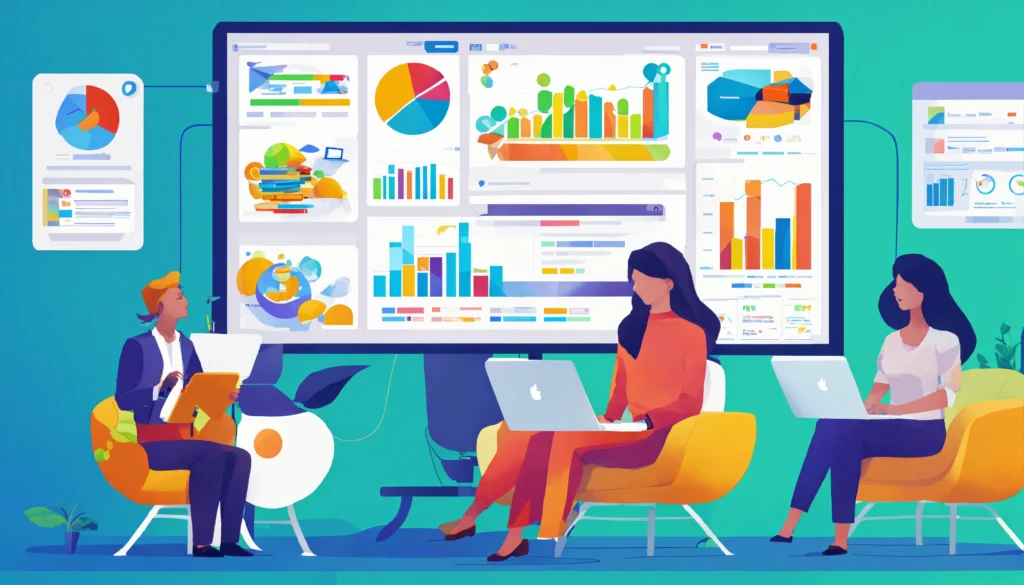The digital age has radically transformed the business landscape, demanding unprecedented operational efficiency. In this context, automation has become imperative, and state-of-the-art customer relationship management ( CRM ) and enterprise resource planning ( ERP ) systems play a crucial role. These integrated and optimized systems enable the automation of key processes, reducing costs, improving productivity, and delivering a superior customer experience. This article will explore how automation with state-of-the-art CRM and ERP systems is revolutionizing the way businesses operate and compete in today’s marketplace.
1. The Convergence of CRM and ERP: An Empowering Synergy
Traditionally, CRM and ERP systems operated in isolation. CRM focused on managing customer interactions, while ERP focused on internal business management, including supply chain, financial management, and human resources. However, integrating the two systems has proven to be a winning strategy. This convergence allows for a holistic view of the business, facilitating the automation of workflows ranging from customer acquisition to product or service delivery.
For example, integration allows you to automate the creation of sales opportunities from customer interactions recorded in your CRM . When a customer makes an inquiry through your website or by phone, this information is automatically recorded in your CRM , triggering a workflow that notifies your sales team and generates a sales opportunity in the system. If the opportunity converts into a sale, the information is automatically transferred to your ERP , generating a purchase order, managing inventory, and updating financial forecasts. This automation eliminates data duplication, reduces human error, and speeds up business processes.
Gartner research shows that companies that implement integrated CRM and ERP systems experience significant increases in operational efficiency and customer satisfaction. The ability to access real-time information and automate repetitive tasks frees up employees to focus on higher-value activities, such as solving complex problems and creating innovative strategies.
2. Automation of Key Processes: From Marketing to After-Sales
Automation with next-generation CRM & ERP enables you to automate a wide range of business processes, including:
* Marketing and Sales: Email marketing campaign automation, lead generation, sales opportunity qualification, sales pipeline management, and lead tracking. Tools like marketing automation allow you to segment audiences, personalize messages, and automate email delivery based on customer behavior.
* Customer Service: Automating customer service through chatbots, ticketing systems, and knowledge bases. This enables quick responses to customer inquiries, efficient problem resolution, and improved customer satisfaction. Integration with the ERP provides access to order, billing, and other relevant data for more personalized and efficient customer service.
* Supply Chain Management: Automation of demand planning, inventory management, logistics, and supplier management. ERP enables supply chain optimization, reducing inventory costs, and improving delivery efficiency. Integration with CRM enables better demand forecasting based on customer interactions.
* Financial Management: Automation of invoicing, accounting, payment management, and financial reporting. ERP facilitates the automation of repetitive tasks, reduces the risk of errors, and improves the accuracy of financial data.
* Human Resources Management: Automation of payroll management, time and attendance management, and recruiting. Integration with ERP enables more efficient human resources management and better alignment with company objectives.
3. Artificial Intelligence and Machine Learning: Empowering Automation
New generations of CRM and ERP systems incorporate artificial intelligence (AI) and machine learning (ML) technologies to enhance automation and decision-making. These technologies enable:
* Demand Prediction: ML algorithms can analyze historical data and predict future demand, enabling more efficient inventory management and production planning.
* Customer segmentation: AI can segment customers based on their characteristics and behaviors, enabling more personalized and effective marketing campaigns.
* Fraud detection: AI systems can detect suspicious patterns and prevent fraud in financial transactions.
* Automation of complex tasks: AI can automate tasks that previously required human intervention, such as document classification, language translation, and report generation.
Specific examples of AI applications in CRM include personalizing product recommendations on e-commerce websites, predicting the likelihood of customer churn, and automating lead assignment to sales reps. In ERP , AI can optimize delivery routes, predict equipment failures, and automate supply chain troubleshooting.
4. Implementation and Key Considerations
Successful implementation of an integrated CRM and ERP system requires careful planning and a well-defined strategy. Some key aspects to consider include:
* System Selection: It is crucial to choose a system that fits the specific needs of the company, considering the size, industry, and business objectives.
* Data integration: Data integration between CRM and ERP is critical for effective automation . Compatibility between systems and data quality must be ensured.
* Employee training: It is essential to train employees so they can use the system efficiently. Training should be practical and cover all relevant aspects of the system.
* Maintenance and support: It’s important to have a maintenance and support plan to ensure the system’s continued operation. This includes regular updates, technical support, and troubleshooting.
Implementing an integrated CRM and ERP system can be a complex and expensive project. However, the long-term benefits—in terms of operational efficiency, cost reduction, and improved customer satisfaction—justify the investment.
5. Conclusion: The Future of Business Efficiency
Automation with next-generation CRM and ERP systems is transforming the way businesses operate and compete in today’s marketplace. The integration of these systems, powered by AI and ML, enables the automation of a wide range of processes, improving operational efficiency, reducing costs, and delivering a superior customer experience. For companies seeking a competitive advantage in today’s marketplace, investing in an integrated CRM and ERP system is a key strategic decision. The key to success lies in careful planning, effective implementation, and proper staff training. Automation is not just a trend but a requirement for survival and growth in today’s dynamic business environment. Taking full advantage of the capabilities of these integrated systems is critical to ensuring efficiency, productivity, and long-term success.


